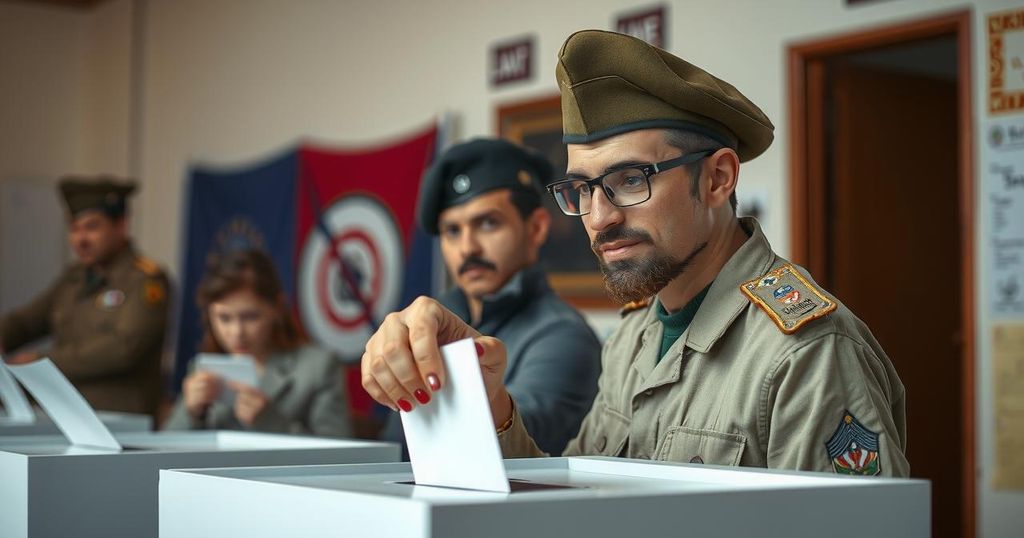Chad Conducts Elections Amid Opposition Boycott and Security Concerns
Chad voters are participating in legislative, provincial, and local elections after three years of military leadership, amidst a boycott from opposition parties due to alleged electoral fraud in previous elections. The ruling government claims these elections are vital for transitioning to democracy, but the atmosphere remains charged with allegations of corruption and security threats from jihadist groups.
Chad is conducting legislative, provincial, and local elections after a three-year period of military governance, with voting taking place on Sunday. This electoral process is marred by a boycott from opposition parties, who argue that the previous presidential election was fraudulent. The ruling government, led by Marshal Mahamat Idriss Itno, describes this election as a pivotal moment in the nation’s transition to democratic governance, though accusations of electoral malpractice persist. With the opposition absent, candidates aligned with Itno are likely to dominate the ballot. The electoral atmosphere is additionally tense, marked by potential fraud allegations and security challenges from jihadist groups in the region, further complicating Chad’s political landscape.
The context of Chad’s current elections arises from the overthrow of long-time ruler Idriss Deby Itno, who ruled for thirty years until his death in 2021. His son, Mahamat Idriss Itno, assumed power through military means and initiated a political transition, promising elections as part of this process. However, the transparency of this transition has been called into question, especially following a contested presidential election in May 2022, which the opposition claimed was marred by corruption. The country has not held legislative elections since 2011, leading to growing frustration within the populace. Political unrest and violence, including a crackdown on demonstrations, have further destabilized the nation, necessitating a careful examination of the current electoral climate.
The elections in Chad represent a critical juncture in the country’s governance following military rule. Amid a boycott from opposition parties, concerns about electoral integrity loom large, particularly with accusations of fraud and an absence of media coverage due to governmental restrictions. As the nation grapples with external threats and internal discontent, the political future remains uncertain, underscoring the challenges facing the current administration in fostering a legitimate democratic process.
Original Source: www.france24.com




Post Comment